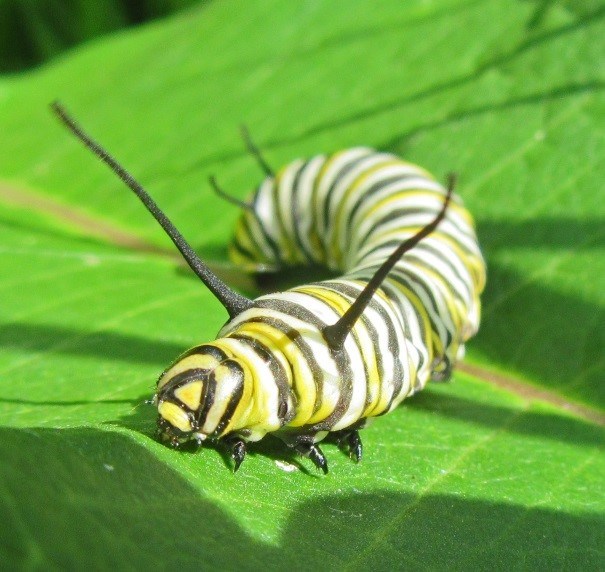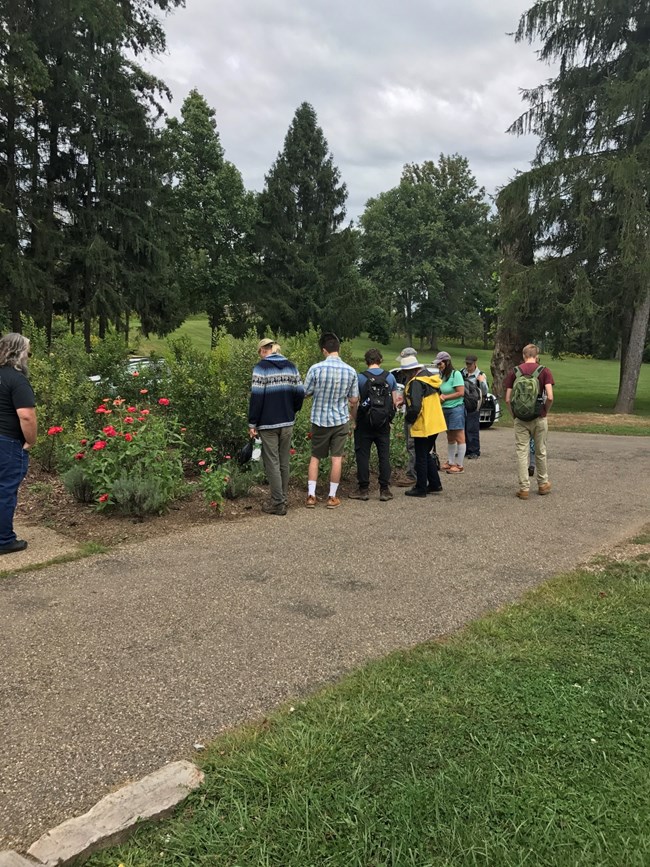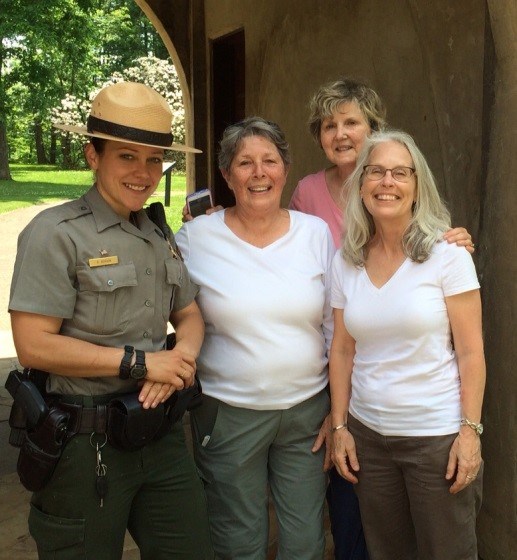Last updated: March 20, 2018
Article
Monarch Mafia: Making a Difference One Butterfly at a Time

Photo courtesy of Friendship Hill National Historic Site.

Photo courtesy of Friendship Hill National Historic Site.
The off-leash dog owner was Sunnie Morton, and the conversation was the beginning of the Monarch Mafia, a dedicated group of volunteers, that is still going strong and providing support to the park, its plants, and pollinators.
"When the monarchs arrive, the [Monarch Mafia] goes out once a week to look for adults and instars on spotted milkweed,” said Morton.
The volunteers have been counting the number of monarch eggs and larvae and documenting the variation between the years and among different locations. While a survey once a week from June to October is the only commitment required of the volunteers, each person takes time to study and learn how to identify the monarch eggs, according to Morton.
Recognizing that habitat loss is a threat to monarch butterflies, park staff have been altering mowing times in coordination with a local farmer. This simple act of changing the park’s mowing regime has allowed pollinators to enjoy fresh milkweed blooms and much needed habitat throughout the growing season.

Photo courtesy of Friendship Hill National Historic Site.
Gardens for All
Working with park staff, the Monarch Mafia established pollinator gardens around the Gallatin House at Friendship Hill NHS using historically accurate native plant species. The butterfly weed, purple coneflower, and bee balm benefit a variety of butterflies, hummingbirds, bees, and other insects, providing pollen, nectar, and habitat. The gardens also attract visitors, who admire the plants and their insect companions. The small gardens illustrate that a few simple additions or changes can create prime habitat for pollinators, which is a great lesson for other parks—even small patches of habitat help!
“The pollinator gardens at Friendship Hill are such a marvelous opportunity to rediscover tranquility and the simple beauty of our Earth’s pollinators working so diligently within the beauty of the flowers,” said volunteer Valerie Faris. “It is such a joy to watch other visitors also stand still and just observe.”
Morton now lives in New Mexico, but the other Friendship Hill NHS volunteers carry on. They are not only protecting and enhancing the park’s resources, they are also educating the public in the process. The Monarch Mafia shares information about monarchs and other pollinators at special events, and they hope to work with park staff to establish more gardens and expand their natural history observations.
For Morton, public awareness is one of the most important actions the Monarch Mafia can take moving forward, telling people about the declining populations of monarchs and letting people know what the Mafia does.

Photo courtesy of Friendship Hill National Historic Site.
The park is eager for more involvement with the Monarch Mafia, too!
“I look forward to working with this passionate group in the near future,” Benson said. “It is so exciting that we are opening many doors for strong relationships with our natural world.”
The Monarch Mafia of Friendship Hill NHS provides great example of how you can harness the power of citizen science and volunteers to help preserve and protect pollinators in your park.
You can support pollinators, too!
If your park has a pollinator garden or habitat restoration project, please register it through the Million Pollinator Garden Challenge.Park Staff: If you have a similar story of how people have made a difference for pollinators in your park unit, please submit your stories on the Pollinator Friendly Parks site. Natural Resource Stewardship and Science staff will share pollinator success stories in 2018 through social media and InsideNPS articles, with the hope of inspiring action in others. For more information, e-mail us.
